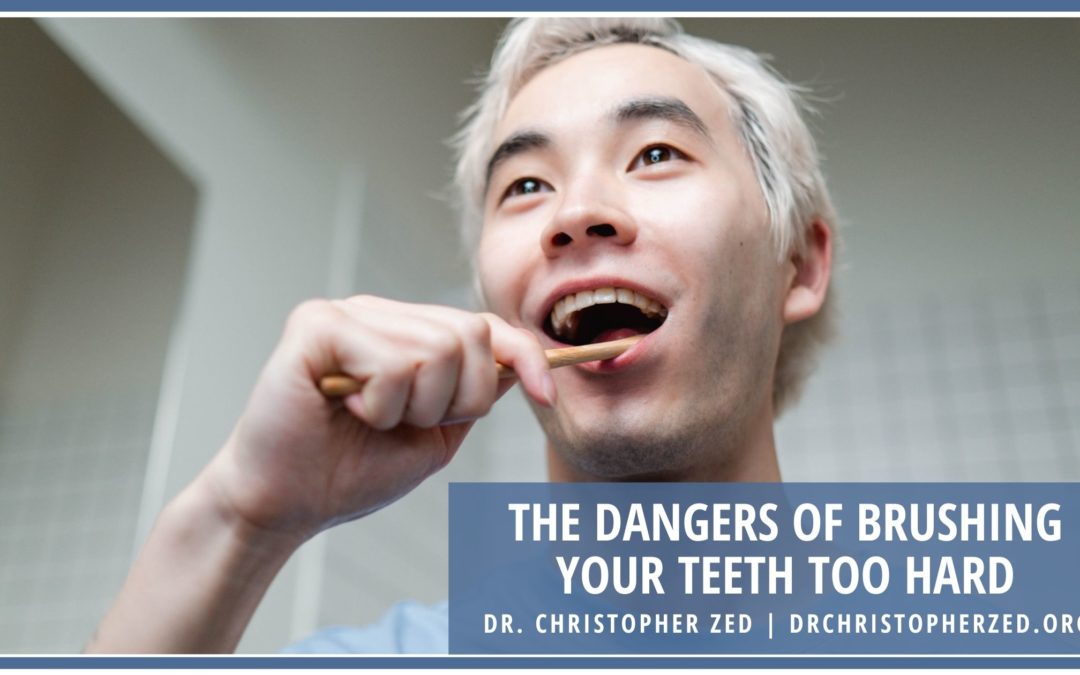When it comes to dental care, far too many people believe that as long as they brush their teeth twice daily that they are all set. The concept of proper brushing techniques never even crosses their minds.
Unfortunately, brushing techniques do have an impact on overall oral health. There is such a thing as brushing too hard – and it is all too common. The good news is that there are some easy ways to tell if one is brushing too hard – and what to do if they are.
Harmful Effects of Brushing Too Hard
There are a few significant concerns when it comes to brushing your teeth too hard. The first and foremost being the damage done to your teeth. Hard brushing can wear down teeth prematurely, damaging the enamel. In turn, this creates overly sensitive teeth and can even result in more damage down the line.
The second concern revolves around the gums. Brushing too hard can have a negative impact on gums and can even result in gum recession. In other words, aggressive brushing can force your gums to recede over time. This creates several problems, especially if the roots become exposed. This can result in tooth decay, especially as roots are more vulnerable to damage.
It is important to remember that oral health is directly connected to the rest of the body. Thus, to be our healthiest, we must first take care of our teeth. Finally, let us not forget that both of these concerns will impact the way we smile.
Warning Signs
There are certain warning signs one can look for to determine whether or not they are brushing too hard. First, look to the gums. Are they showing any signs of receding? Do they look red and inflamed after brushing?
Next, take a good look at the teeth. Are they nice and bright throughout? Or are they duller near the gums? Finally, consider tooth sensitivity. Have the teeth become more sensitive over time? This is yet another warning sign.
Still not sure? Take a look at your toothbrush. A toothbrush that is even three months old should still look relatively new and undamaged. Brushing too hard will result in damaged bristles – and more.

